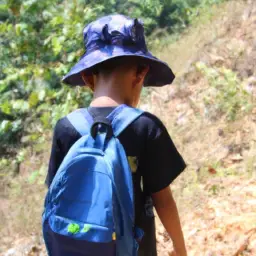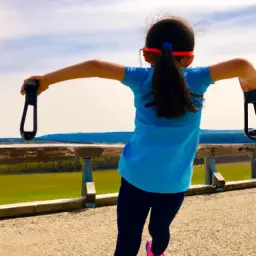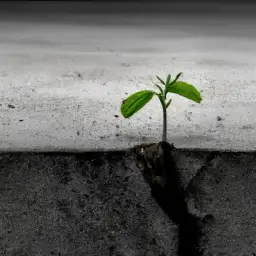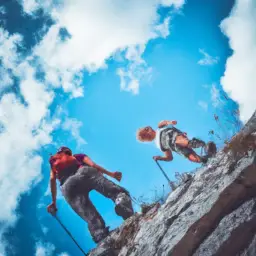Do you ever feel like you’re stuck in the same place, unable to grow and improve yourself? Maybe you lack the confidence to take on new challenges, or perhaps you struggle to persevere through difficult tasks.
The good news is that two key factors, grit and social skills, can have a significant impact on your personal growth and self-confidence.
Grit is the ability to stick with something even when it’s challenging or unpleasant. It involves a combination of passion and perseverance, and it’s essential for achieving long-term goals.
On the other hand, social skills refer to the ability to communicate effectively with others and build positive relationships. When you have strong social skills, you’re better equipped to navigate social situations, resolve conflicts, and collaborate with others.
By cultivating both grit and social skills, you can improve your personal growth and self-confidence in various areas of your life.
Key Takeaways
- Developing grit involves perseverance, passion, and resilience in achieving long-term goals and breaking them down into smaller tasks.
- Building social skills requires practice, feedback, and self-awareness, and can lead to effective emotional management, conflict resolution, and successful personal and professional relationships.
- Combining grit and social skills involves being present, empathetic, and vulnerable, and effective communication can prevent misunderstandings and conflicts.
- Developing a growth mindset and continuous learning can lead to personal and professional success, and overcoming obstacles involves reflecting on mistakes, seeking feedback, and staying persistent.
Understanding Grit and Social Skills
Let’s dive into what grit and social skills are all about so we can better understand their impact on personal growth and self-confidence.
Developing grit means having the passion and perseverance to achieve long-term goals. It involves having the motivation to keep going even when faced with obstacles and setbacks. Grit is not just about working hard, but also about being resilient and adaptable. By developing grit, you can become more self-aware, better at managing your emotions, and more focused on achieving your goals.
Improving communication is another key aspect of building social skills. Social skills refer to the ability to interact with others in a positive and productive way. Good communication skills include active listening, expressing yourself clearly, and being able to understand social cues.
By improving your communication skills, you can build better relationships, increase your confidence, and become more effective in both personal and professional settings.
Both grit and social skills are important for personal growth and self-confidence, and by working on these areas, you can achieve your goals and become the best version of yourself.
The Impact of Grit on Personal Growth and Self-Confidence
You may have heard the term ‘grit’ before, but do you know what it means for personal growth and self-confidence?
Grit is the combination of perseverance and passion for long-term goals, and it has a significant impact on your ability to overcome challenges and achieve success.
By developing greater resilience and work ethic, and a stronger sense of purpose, you can cultivate more grit and see the positive effects in your life.
Perseverance and Passion for Long-Term Goals
Achieving long-term goals requires both perseverance and passion, two key components of grit that can lead to personal growth and increased self-confidence. Developing perseverance skills is important in maintaining the motivation needed to reach long-term goals. It requires a constant effort to push through challenges and setbacks, and to keep working even when progress seems slow.
To find motivation for long-term goals, it’s important to connect them with your personal values and interests. This could mean setting goals that align with your passions or finding ways to make a positive impact on the world.
Additionally, breaking long-term goals into smaller, more manageable tasks can make them feel less daunting and increase the likelihood of success. By persevering through challenges and maintaining a passion for achieving your goals, you can build the grit needed to achieve personal growth and increased self-confidence.
Greater Resilience and Work Ethic
Developing greater resilience and a strong work ethic can lead to success in both personal and professional pursuits, helping you overcome challenges and achieve your goals.
Building resilience means being able to bounce back from setbacks and failures, turning them into opportunities for growth and learning. It means developing a mindset that sees obstacles as temporary roadblocks, not insurmountable barriers. By cultivating resilience, you can build the confidence and determination needed to keep moving forward, even in the face of adversity.
Cultivating a strong work ethic means adopting a mindset that values hard work, persistence, and discipline. It means being willing to put in the necessary time and effort to achieve your goals, no matter how challenging they may be.
Developing a strong work ethic also means being willing to learn from your mistakes and to continually improve your skills and knowledge. By embracing these values and attitudes, you can develop a sense of self-confidence and pride in your accomplishments, which can help you to achieve even greater success in all areas of your life.
Stronger Sense of Purpose
Having a stronger sense of purpose can provide direction and motivation in life, leading to a greater sense of fulfillment and satisfaction. When you have a clear understanding of what you want to achieve and why it is important to you, it becomes easier to stay focused and overcome obstacles that may come your way. Finding purpose involves a process of self-discovery where you explore your values, interests, and strengths to identify what truly matters to you.
The table below shows some ways in which developing a stronger sense of purpose can impact your personal growth and self-confidence:
| Benefits of Finding Purpose | Description |
|---|---|
| Clarity | Knowing your purpose can provide clarity and focus, making it easier to make decisions and take action towards your goals. |
| Motivation | Understanding your purpose can provide motivation and drive to pursue your goals, even when faced with challenges. |
| Sense of Accomplishment | Achieving your purpose can provide a sense of accomplishment and pride in your achievements. |
| Self-Actualization | Fulfilling your purpose can help you reach your full potential and become the best version of yourself. |
Overall, having a stronger sense of purpose can lead to a more fulfilling and satisfying life, as you have a clear direction and motivation to pursue your goals. Through self-discovery and exploration, you can identify what truly matters to you and take action towards achieving your purpose.
The Impact of Social Skills on Personal Growth and Self-Confidence
You can enhance your personal growth and boost your self-confidence by improving your social skills. Developing empathy and effective communication can help you build meaningful relationships, establish trust, and foster a sense of community.
Here are three ways in which social skills can positively impact your personal growth and self-confidence:
-
Improved Emotional Intelligence: Having strong social skills enables you to understand and manage your emotions effectively. You become better equipped to recognize and regulate your feelings, which leads to a greater sense of emotional intelligence. This, in turn, helps you navigate challenging situations with ease, leading to a more confident and self-assured you.
-
Enhanced Communication: Effective communication is a cornerstone of success in personal and professional settings. When you have strong social skills, you can communicate your thoughts and ideas clearly, listen actively, and collaborate effectively. You become an effective communicator who can negotiate, persuade, and influence others, which ultimately leads to more significant personal growth and success.
-
Better Conflict Resolution: Life is full of conflicts, and how you handle them can significantly impact your personal growth and self-confidence. Having strong social skills equips you with the tools to navigate conflicts with grace and ease. You become better at dealing with difficult conversations, finding common ground, and reaching mutually beneficial outcomes. This leads to a sense of empowerment and self-confidence that can help you achieve your goals and dreams.
Cultivating Grit in Yourself
If you want to cultivate grit in yourself, start by setting long-term goals that challenge you.
Develop a growth mindset that allows you to see failures as opportunities to learn and grow.
Embrace the idea that setbacks are a natural part of the process and use them as stepping stones towards success.
By adopting these practices, you can build resilience and tenacity that’ll help you overcome any obstacle on your path to success.
Setting Long-Term Goals
So, let’s talk about how setting long-term goals can really boost your personal growth and self-confidence! When you have a clear vision of where you want to be in the future, it becomes easier to stay focused and motivated.
Setting long-term goals helps you create accountability for yourself and stay on track towards achieving your desired outcomes. Moreover, long-term goals require planning and strategy, which allows you to learn new skills and gain knowledge throughout the process.
This continuous learning can lead to personal growth and development, as well as an increase in self-confidence. When you achieve your long-term goals, you prove to yourself that you have the ability to follow through on something important to you, which can lead to a sense of accomplishment and a boost in self-esteem.
So, take the time to set long-term goals for yourself and watch your personal growth and self-confidence soar!
Developing a Growth Mindset
Hey, let’s talk about how having a growth mindset can really help you achieve your goals and overcome obstacles!
Developing a growth mindset means understanding that your abilities can be improved through dedication, hard work, and perseverance. It’s about believing that with effort and persistence, you can learn and grow, even if you don’t have all the answers right now.
One way to develop a growth mindset is by embracing challenges. Instead of shying away from difficult tasks, you can view them as opportunities to learn and improve.
When you encounter obstacles, don’t give up. Instead, focus on what you can do to overcome them. By taking on challenges and persevering through difficult times, you’ll develop accountability and the resilience needed to achieve your long-term goals.
Remember, developing a growth mindset is a process that takes time and effort, but the payoff is well worth it.
Learning from Failures
Learning from failures is crucial to developing a growth mindset and achieving success. It’s important to not let failures discourage you, but instead use them as an opportunity to learn and grow.
Here are some ways to overcome obstacles and learn from your failures:
- Reflect on what went wrong and why it happened.
- Take responsibility for your mistakes and acknowledge them.
- Brainstorm ways to improve and prevent the same mistake from happening again.
- Seek feedback from others and use it constructively.
- Stay persistent and don’t give up on your goals.
By learning from your failures, you can develop resilience and become better equipped to handle challenges in the future. It takes practice and effort, but with a growth mindset, you can turn setbacks into opportunities for growth and self-improvement.
Cultivating Social Skills in Yourself
Developing your social skills is like tending to a garden. With patience, care, and persistence, you can cultivate a beautiful and thriving network of relationships. Just like how a garden needs water, sunlight, and nutrients to grow, your social skills need practice, feedback, and self-awareness to improve. Here are some practical tips to help you cultivate your social skills and become an effective communicator:
| Practice Active Listening | Ask Open-Ended Questions |
|---|---|
| Be fully present and engaged in the conversation | Avoid yes/no questions that can lead to dead ends |
| Show empathy and understanding | Encourage the other person to share more about themselves |
| Paraphrase what the other person said to show you understand | Listen with curiosity and a desire to learn |
| Use Nonverbal Communication | Give and Receive Feedback |
|---|---|
| Maintain eye contact and good posture | Be open to constructive criticism and willing to learn from it |
| Use appropriate facial expressions and gestures | Give feedback in a respectful and specific manner |
| Match your tone of voice to the message you want to convey | Receive feedback graciously and thank the person for their input |
By practicing these tips, you can improve your social skills and become a more effective communicator. Remember, developing your social skills takes time and effort, but with persistence and dedication, you can cultivate meaningful relationships and boost your self-confidence.
Combining Grit and Social Skills for Personal Growth and Self-Confidence
Combining perseverance and effective communication can lead to a more fulfilling and successful life. Building relationships is a crucial part of personal growth, and it requires a lot of effort and patience. However, by using grit and social skills, you can build strong connections that will help you in your personal and professional life.
Here are three ways you can combine grit and social skills to build meaningful relationships:
-
Be present: When you’re interacting with someone, give them your full attention. Put away your phone, make eye contact, and actively listen to what they’re saying. By showing that you’re fully engaged in the conversation, you’re building trust and showing that you value the relationship.
-
Be empathetic: Put yourself in the other person’s shoes and try to understand their perspective. By showing empathy, you’ll be able to connect with them on a deeper level and build a stronger relationship.
-
Be vulnerable: Share your own experiences and feelings with others. By being vulnerable, you’re showing that you trust the other person and that you’re willing to open up. This can lead to a deeper connection and a more meaningful relationship.
Communication skills are also essential when building relationships. By being an effective communicator, you can convey your thoughts and feelings clearly, which can prevent misunderstandings and conflicts.
To improve your communication skills, try the following:
-
Listen actively: When someone is speaking to you, make sure to listen actively. That means paying attention to their words, tone, and body language. By doing so, you’ll be able to understand their message and respond in a thoughtful manner.
-
Be clear and concise: When you’re communicating your own thoughts and feelings, be clear and concise. Avoid using jargon or complex language, and make sure to get to the point quickly.
-
Be respectful: Always be respectful of others, even if you disagree with them. Use contractions, ‘I’m’ instead of ‘I am’, for example, ‘I’m sorry’ instead of ‘I am sorry’. Use ‘I’ statements instead of ‘you’ statements, and avoid attacking or blaming others. By being respectful, you’ll be able to maintain positive relationships and work collaboratively with others.
Frequently Asked Questions
What are some specific examples of situations where grit and social skills are particularly important for personal growth and self-confidence?
To develop perseverance and improve communication skills, there are certain situations where these traits are particularly important for personal growth and self-confidence.
For example, when facing a challenging task, developing perseverance can help you overcome obstacles and achieve success. Whether it’s a difficult project at work or a personal goal you’ve set for yourself, staying committed and focused on the end result can help you build confidence in your abilities.
Similarly, improving communication skills can be crucial in situations where you need to advocate for yourself or navigate complex social dynamics. Whether it’s negotiating a raise or building relationships with colleagues, being able to clearly and effectively communicate your ideas and needs can help you feel more confident and empowered.
Can social skills be developed without also cultivating grit, or vice versa?
If you’re wondering whether social skills can be developed without cultivating grit, or vice versa, the answer is probably not.
Grit and social skills are intertwined and often develop in tandem. For instance, you need grit to persevere through tough projects or challenging coworkers, and social skills to navigate office politics and build relationships with colleagues.
Similarly, the importance of grit and social skills in relationships cannot be overstated. Maintaining healthy relationships requires both perseverance and strong interpersonal skills.
In short, grit and social skills are complementary traits that are often developed together, and neglecting one can hinder the development of the other.
Are there any potential downsides or negative effects to having high levels of grit or social skills?
Having high levels of grit and social skills can certainly be beneficial, but it’s important to understand that there may also be limitations to these traits.
For example, being too focused on your own goals and persevering through challenges at all costs can sometimes lead to burnout or neglecting important relationships. Similarly, being too empathetic and prioritizing others’ needs over your own can lead to neglecting your own goals and well-being.
It’s important to find a balance between grit and empathy, and to recognize that both traits have their own strengths and weaknesses. By finding this balance, you can develop a well-rounded set of skills that will help you grow personally and build your self-confidence.
How do cultural and societal factors play a role in shaping an individual’s level of grit and social skills?
Your level of grit and social skills are heavily influenced by cultural factors and your socioeconomic status.
Cultural influence plays a significant role in shaping your personality traits since it encompasses your beliefs, values, and behaviors. For example, if you grew up in a collectivist culture where group harmony is highly valued, you may develop better social skills compared to someone from an individualistic culture.
Additionally, your socioeconomic status also impacts your level of grit and social skills since it affects the opportunities and resources available to you. For instance, individuals from low-income backgrounds may have less access to educational and career opportunities, which may limit their ability to develop grit.
Overall, cultural and societal factors play a crucial role in shaping your personality traits, including grit and social skills.
Are there any effective strategies or techniques for overcoming obstacles or setbacks in the process of developing grit or social skills?
When it comes to developing grit and social skills, there are effective techniques and practical applications that can help you overcome obstacles and setbacks.
One of the most important strategies is to set realistic goals and break them down into smaller, achievable steps. This can help you stay motivated and focused, even when faced with challenges.
Another technique is to seek out social support, whether it’s through friends, family, or a mentor. Having a support system can help you stay resilient and bounce back from setbacks more easily.
Additionally, practicing mindfulness and self-reflection can help you identify your strengths and weaknesses, and develop a growth mindset that allows you to learn from mistakes and setbacks.
By incorporating these techniques into your life, you can develop the grit and social skills you need to thrive and achieve your goals.
Conclusion
So, you now understand the importance of grit and social skills when it comes to personal growth and self-confidence.
Grit is the determination and perseverance to keep going even when things get tough, while social skills allow you to communicate effectively and build relationships with others.
By cultivating both grit and social skills, you can boost your personal growth and self-confidence. This may involve setting goals, practicing positive self-talk, seeking feedback, and taking risks.
It may also involve improving your communication skills, listening actively, and showing empathy towards others. Remember, it takes time and effort to develop these skills, but the rewards are worth it.
With grit and social skills, you can overcome obstacles, achieve your goals, and build meaningful relationships that support your personal growth and self-confidence.














































































































